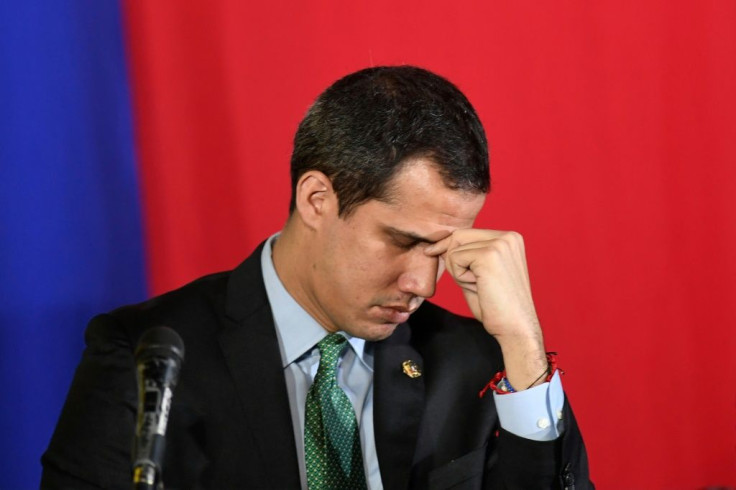US-Iran Confrontation Looms In The Caribbean Sea? Venezuela To Send Warships To Protect Iran Tankers
Five Iranian-flagged tankers left their home ports last week filled with gasoline and other goods. Their destination is Venezuela, a country facing a gasoline shortage even as it sits atop the world's largest proven oil reserves. It is unable to refine its own crude oil due to, ironically, limited supplies of gasoline.
Venezuela is also seeing a rise in cases of COVID-19, adding more woes to a country in an economic free-fall caused by mismanagement, corruption and sanctions from the U.S. over its disputed presidency. Millions of people in need of basic goods are fleeing the country.
Neither President Nicolás Maduro nor Defense Minister Vladimir Lopez knows when the five ships, named the Clavel, the Forest, the Faxon, the Fortune, and the Petunia will arrive but the lead tanker, Fortune, is thought to be about two days away from arrival in Caracas.
Lopez said that when the Iranian ships enter the oceanic economic zone, 200 nautical miles from the coastline, "they will be welcomed" by Venezuelan naval ships and warplanes to provide escort and guard against any U.S. intrusion.
Maduro told his state-run media that "We're ready for whatever, whenever.” He expressed thanks to Iran for "all the support" for its confrontation with the United States.
Iran's foreign minister Mohammad Zarif has indirectly warned Washington about deploying its navy to disrupt the fuel shipments. In his letter to United Nations chief Antonio Guterres, Zarif said that any such action by the U.S. would be "illegal and a form of piracy," and that the U.S. would be responsible for "the consequences of any illegal measure."

The United States is one of 60 countries that recognize opposition leader and National Assembly speaker Juan Guaido as Venezuela’s interim president. Maduro took over as the Venezuelan leader in 2013 after the death of Hugo Chavez and continued the close ties Chavez had established between Teheran and Caracas.
Maduro “won” the 2018 presidential election, but it was filled with many irregularities causing world-wide concerns over its validity. Guaido declared himself interim president on Jan. 23, 2019, with the support of the U.S., Canada and most of Latin America and Western Europe. Maduro’s supporters include China, Cuba, Russia, Iran and Turkey.
Guaido expressed his views on the Iran tankers heading to Caracas during a videoconference organized by a Washington-based think tank. He said, "They are paying for that gasoline with blood gold,” referring to gold illegally extracted from mining camps in the south of the country.
Whatever force the Venezuelan military can muster, it will not present much resistance to any U.S. efforts to intervene. Venezuela has sent a token force to the presidential island retreat, La Orchila, which lies about 100 miles northeast of capital Caracas. It also released videos of a military drill, with rockets being fired at a stationary tanker. None of the rockets hit the tanker. In any case, La Orchila has no facilities on it for the tankers to offload their fuel there. It is home to a small military outpost with a single runway and limited dock facilities, making it a marginal player if the U.S. does interdict the tankers.
Video of Venezuelan navy ships training and Grad and Smerch live fire drills on Isla Orchila, Smerch artillery appears to have been firing at a stationary tanker used as a target off the coast #Venezuela https://t.co/bgJ3sl9XOd
— CNW (@ConflictsW) May 22, 2020
The U.S. has offered no clue as to if any military intervention is forthcoming when the tankers arrive. President Donald Trump has beefed up U.S. forces in the area that includes Navy destroyers, Coast Guard cutters, Navy littoral combat ships, helicopters, Navy P-8 patrol aircraft, and other aircraft, according to a Miami Herald article written on April 4.
On May 20, Trump said, “We’ve got it [Venezuela] surrounded, it’s surrounded at a level that nobody even knows, but they know. We are watching to see what happens." So is most of the world.
© Copyright IBTimes 2024. All rights reserved.




















